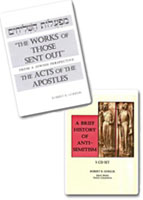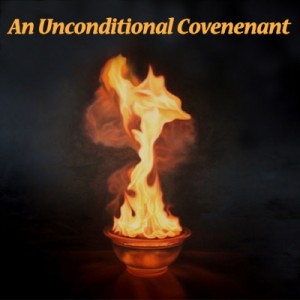First-Century Messianic Judaism—What Caused the Gentiles Believers to Leave It?
 The question is often asked, “How did Gentiles get the notion that they needed to pull away from Judaism and form new practices?” The answer is complex—but the “withdrawal” can be traced back to the writings of the early Church Fathers.
The question is often asked, “How did Gentiles get the notion that they needed to pull away from Judaism and form new practices?” The answer is complex—but the “withdrawal” can be traced back to the writings of the early Church Fathers.
The question about where did the Gentiles get the notion to pull away from the Jews/Judaism is an easy one—Anti-Judaism was a centerpiece feature of the early Church Fathers’ ideology. The “A Brief History of Anti-Semitism” workbook has a plethora of reference material covering church history. Sadly, many of the Church Father’s wrote hate-filled sermons and letters telling believers to stop practicing Judaism and stop associating with Jews. …
First-Century Messianic Judaism—What Caused the Gentiles Believers to Leave It?Read More »
First-Century Messianic Judaism—What Caused the Gentiles Believers to Leave It? Read More »


